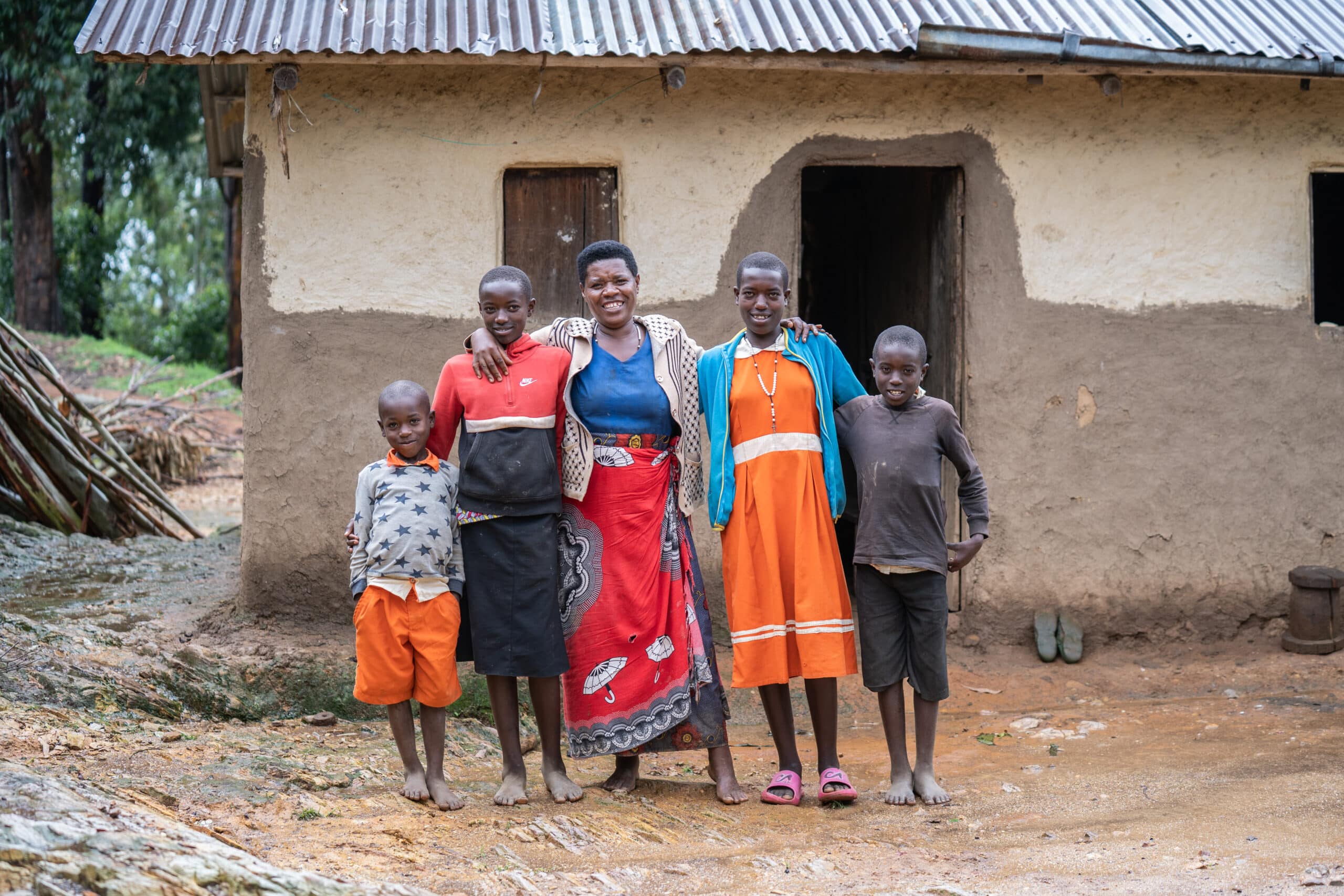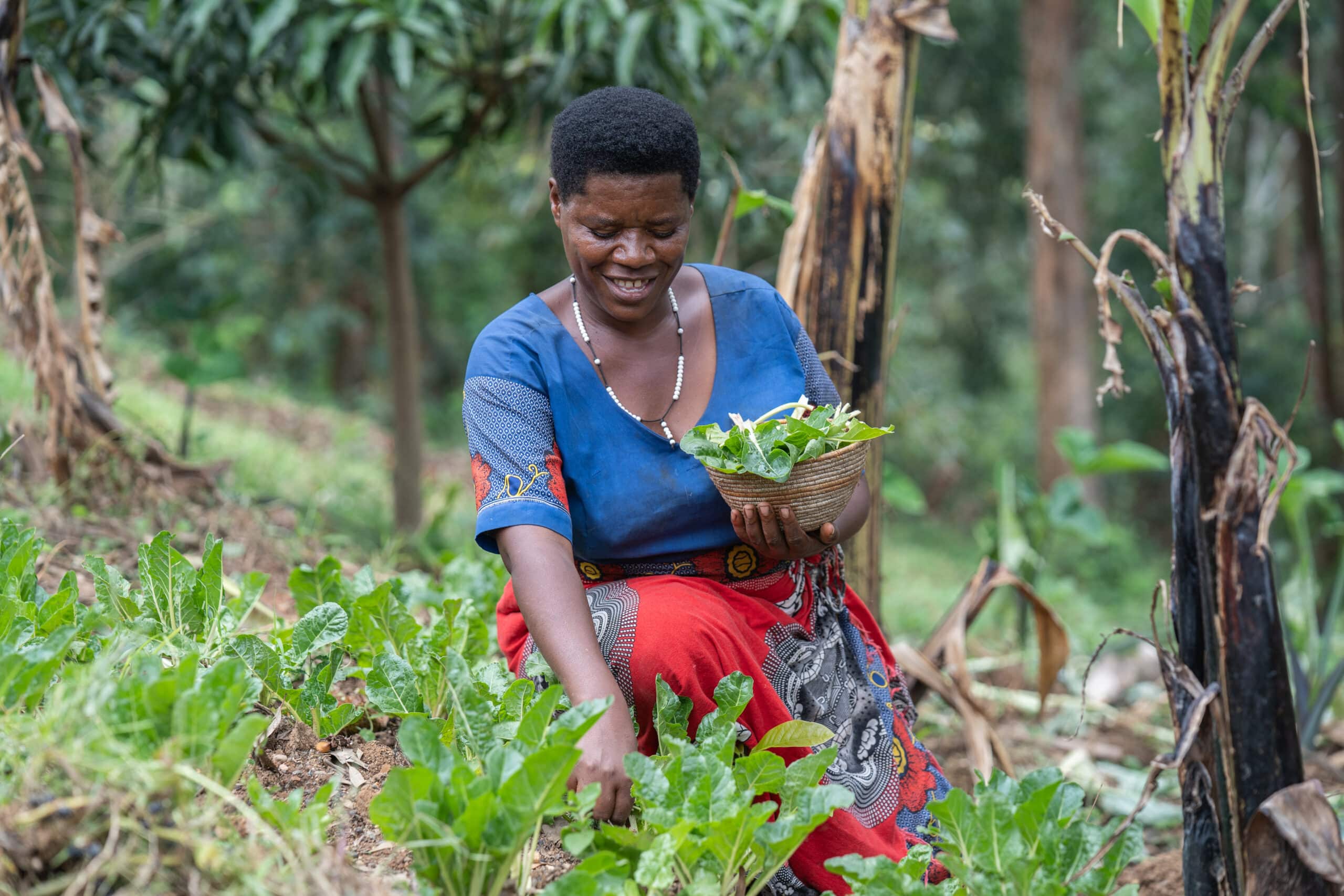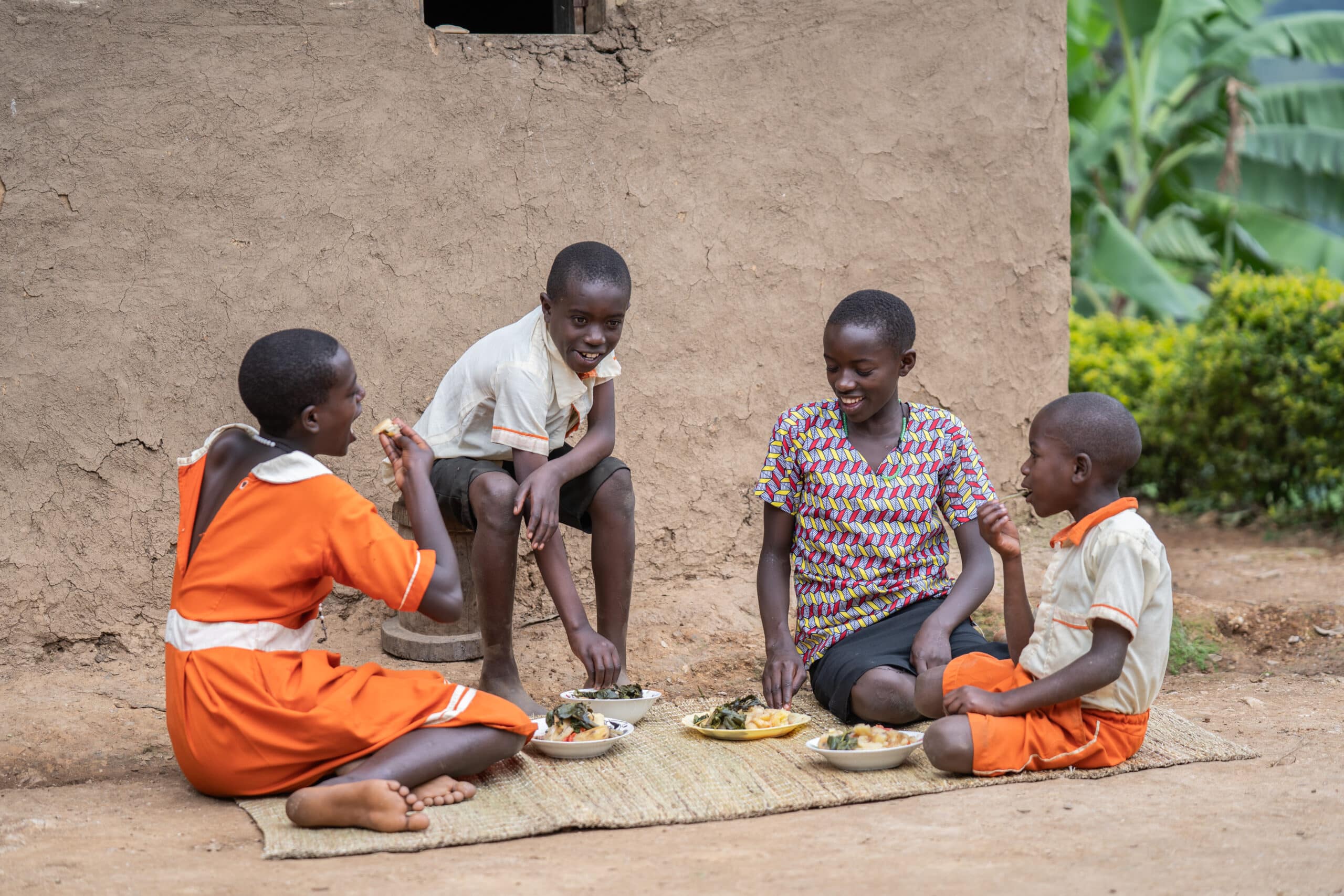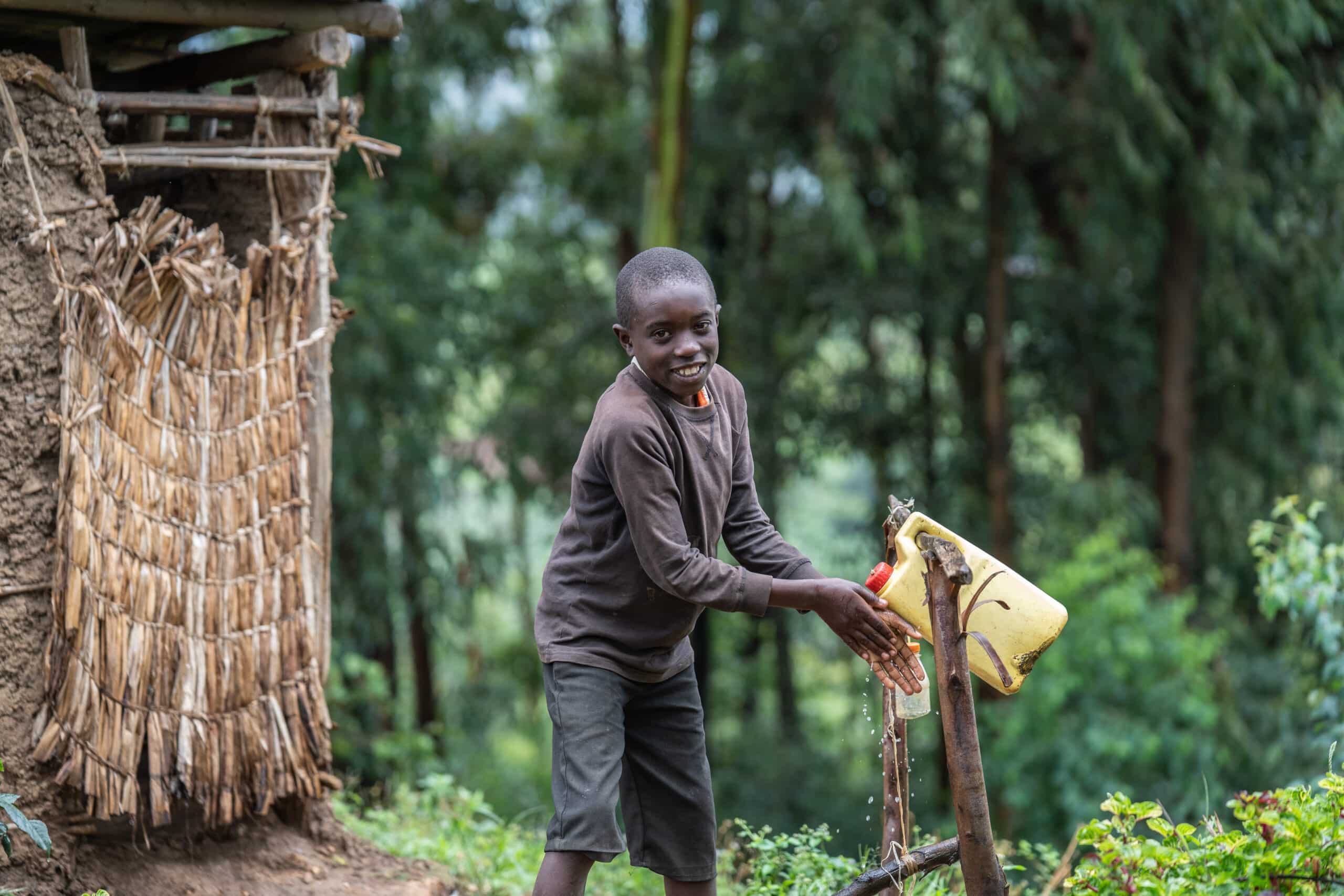A Bright And Healthy Future

In a last-mile village in Buhweju District in Southwestern Uganda lives Scorah, a single mother of five. Over the past years, she has worked hard to provide for her children through her income from a small farm. Scorah mainly cultivates coffee, beans, and bananas. For years, Scorah and her family’s life followed the rhythm of the seasons—planting, harvesting, and selling. But she wanted to provide a better life for her children. Her children would often fall sick from repeated illnesses, like many of the other children in the community. Eager to see them grow strong and healthy, she started planting vegetables a year ago and implemented better sanitation and hygiene practices. “Growing and eating vegetables was not a common thing in my village, and I never knew the importance of growing them or even the nutritional benefits of eating them,” Scorah recalls.
In mid-2024, RTV partnered with Scorah’s community to improve agricultural yield and income through good-quality inputs and modern practices. She participated in various training sessions that provided hands-on and practical knowledge on improving seasonal and perennial crops. A key part of the training sessions also included planting backyard and keyhole gardens for improved household food security. Scorah and her community were introduced to various vegetables such as sukuma wiki, nakati, green pepper, black nightshade, onions, spinach, tomatoes, cabbage, pumpkin, and eggplants. She also learned about the vital role vegetables play in a balanced and nutritionally wholesome diet. “Our community was trained how to grow vegetables and set up keyhole and backyard gardens at our homes. We were also given a variety of vegetable seeds to plant in those gardens,” Scorah shares.

As Scorah started to grow vegetables, she noticed a remarkable change. The children became healthier, their energy levels soaring as they enjoyed balanced meals filled with colourful vegetables. “My children no longer fall sick and look healthy ever since I started adding vegetables to our meals,” she proudly shares. Her vegetable garden flourished with her knowledge of weeding, irrigation, and sustainable farming techniques like applying organic manure and pesticides. “I started making and applying liquid manure and pesticides on my farm and vegetable gardens, and during dry seasons, I normally irrigate the gardens with a watering can,” Scorah states.
The benefits were not just seen in physical health. Scorah’s children are able to attend school regularly. Racheal, her second-born, a bright 16-year-old in grade five, is a big fan of vegetables. “Eating vegetables spices up my meals, and I love helping mum prepare them when I return from school or during holidays,” Racheal shares joyfully. Similarly, her 10-year-old son, Hillary, in grade two, specifically loves nakati and eagerly assists in watering the vegetable gardens, learning valuable skills along the way.

Training sessions on good sanitation and hygiene practices further helped Scorah arrest illnesses in her household. She learned about and implemented practices such as making a dish rack, constructing a tippy tap for handwashing, and covering the latrine. “My family is no longer suffering from hygiene-related illnesses, and I have taught my children the importance of cleanliness,” Scorah shares.

With improved nutrition and good sanitation practices, Scorah’s family is thriving. Her children are the first to rise each morning, full of energy and ready to face the day and work towards their future plans. While Hillary’s favorite subject at school is mathematics, and he wants to become a doctor, Rachael has different plans of her own. “My favorite subject is science, and I want to become a teacher when I grow up,” she says with a smile.
Be part of our journey. Support last-mile communities by supporting Raising The Village.
Let’s Stay Connected

